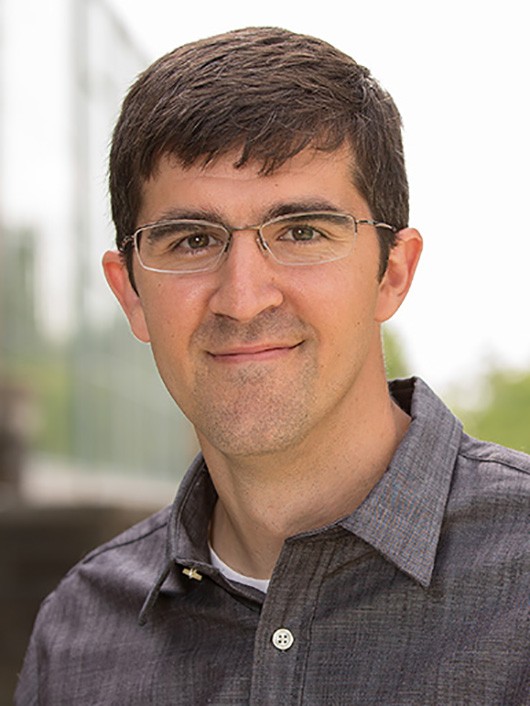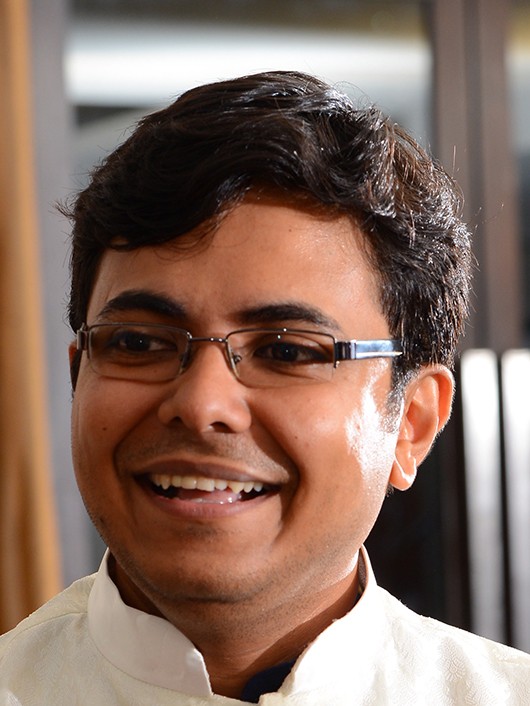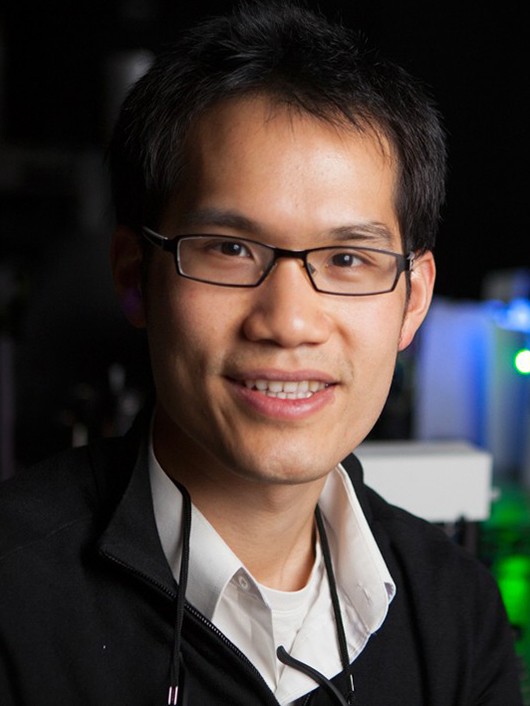Fors, Sridharan, Suntivich win Sloan fellowships
By Tom Fleischman
Assistant professors Brett Fors, Karthik Sridharan and Jin Suntivich have been named recipients of Alfred P. Sloan Foundation fellowships. These awards support early-career faculty members’ original research and broad-based education related to science, technology and economic performance.
Fors teaches in the Department of Chemistry and Chemical Biology; Sridharan is in the Department of Computer Science; and Suntivich is a David Croll Sesquicentennial Faculty Fellow in the Department of Materials Science and Engineering.
“The Sloan research fellows represent the very best science has to offer,” Adam Falk, Sloan Foundation president, said of this year’s group of 126 researchers from across the U.S. and Canada. “The brightest minds, tackling the hardest problems and succeeding brilliantly – Sloan fellows are quite literally the future of 21st-century science.”
The Fors research group focuses on the development of new synthetic methods and catalyst systems to control polymer architecture, composition and function to yield next-generation materials for energy storage and other applications. Future research will focus on three specific approaches:
- Using light as an external stimulus to achieve spatiotemporal control over polymer chain growth and produce materials with previously inaccessible structures;
- Developing a strategy for dictating the shape and composition of polymer molecular weight distributions, to understand their influence on material properties; and
- Synthesizing high-value polymers from itaconic acid, which is a readily available bio-renewable feedstock.
Sridharan’s research has focused on machine learning (ML), and developing a unifying theory and algorithm design principles for online learning. Since 2010, his group has produced more than a half-dozen papers addressing the challenges of developing algorithms for online learning.
Future work, according to Sridharan, will employ his unifying approach to “transform theoretically well-founded ML into an easily usable technology.” Focuses include automation of ML into “plug-and-play” technology, and the creation of socially responsible ML – to build nonpolarizing recommender systems.
Suntivich and his research group investigate the structure and activity of catalysts that can convert readily available resources – such as water and carbon dioxide – into fuels and high-value chemicals. They prepare and manipulate thin films of these catalysts with atomic precision – using molecular beam epitaxy to prepare single-crystal transition metal oxides – to learn how microscopic factors impact the materials’ properties.
Future work will involve using current methods of experimentation to create a fundamentally new class of nonequilibrium “designer” catalysts for key chemical reactions.
This year’s fellows are drawn from 53 colleges and universities in the U.S. and Canada, and represent a diverse array of institutions and backgrounds.
Established in 1934 by Alfred Pritchard Sloan Jr., then-president and CEO of General Motors, the Sloan Foundation makes grants in support of original research and education in science, technology, engineering, mathematics and economics.
Media Contact
Get Cornell news delivered right to your inbox.
Subscribe



